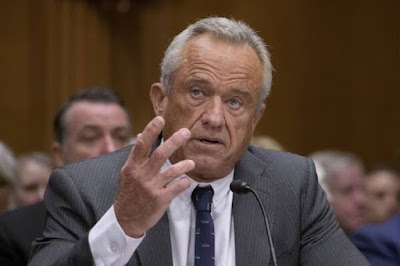Senate Advances Robert F. Kennedy Jr.’s Controversial Nomination for Health Secretary
Senate Advances Robert F. Kennedy Jr.’s Controversial Nomination for Health Secretary
Washington, D.C. – In a pivotal Senate vote, Robert F. Kennedy Jr. moved one step closer to becoming the next U.S. Secretary of Health and Human Services (HHS). The chamber voted 53-47 to advance his nomination, setting the stage for a final confirmation that could reshape the nation’s health policies.
A Polarizing Nomination Amid Public Health Concerns
Kennedy, a prominent environmental lawyer and vaccine skeptic, has been a divisive figure in American politics. His appointment by President Donald Trump has triggered intense debates, particularly over his controversial stance on vaccines and government health regulations. While his supporters argue that he brings a much-needed reformist approach, critics warn that his history of spreading vaccine misinformation could undermine public health efforts.
The nomination has sparked heated opposition from Democratic lawmakers and public health experts, who fear Kennedy’s leadership could erode decades of medical science and vaccine trust. Nevertheless, key Republican senators have backed him, citing his commitment to healthcare transparency and chronic disease prevention.
Key Senate Supporters and Detractors
Senator Susan Collins (R-ME) voiced her support after a private meeting with Kennedy, where he reassured her of his commitment to vaccine efficacy and public health safety. Meanwhile, Senator Bill Cassidy (R-LA), a physician, defended Kennedy’s nomination, arguing that his focus on chronic diseases and medical freedom aligns with the department’s mission.
However, opposition remains fierce. Senator Ron Wyden (D-OR) criticized Kennedy’s track record of promoting vaccine conspiracies, warning that appointing him as head of the HHS would be a dangerous gamble. Major medical organizations, including the American Medical Association, have remained silent, signaling the deep political rift surrounding his confirmation.
Potential Impact on U.S. Health Policy
If confirmed, Kennedy will oversee the HHS, a $1.7 trillion department responsible for federal health programs such as Medicare, Medicaid, and the CDC. His leadership could bring major shifts in policy, particularly regarding vaccine regulations, drug pricing, and public health mandates.
Kennedy has promised to maintain existing vaccine safety protocols while advocating for increased government transparency. However, experts fear his long-standing skepticism toward public health agencies could lead to radical changes in how the U.S. responds to disease outbreaks and medical research funding.
The Road to Final Confirmation
With the procedural vote secured, Kennedy now faces the final Senate confirmation, expected in the coming days. As the political battle intensifies, the outcome will determine whether his controversial health policies and anti-establishment views will shape the future of American healthcare.




Comments
Post a Comment